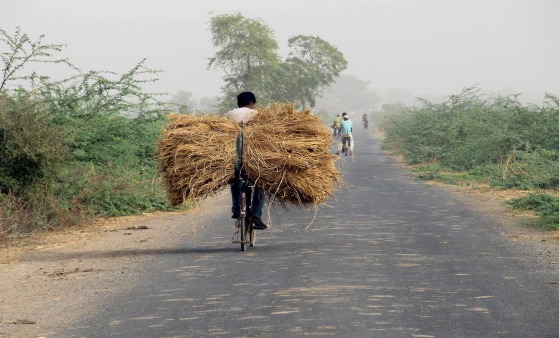Leaders of Christians and Muslims met the visiting UN's Special Rapporteur on Religious Freedom and Belief, Prof. Heiner Bielefeldt at YWCA National office in New Delhi last Thursday and shared with him the religious discrimination faced by their brethren from Dalit backgrounds in the country.
The Special Rapporteur assured the leaders that the UN Human Rights mechanism will continue to raise these concerns at various UN forums.
Dalit Christians and Dalit Muslims have been demanding the government to strike down the Presidential (SC) order of 1950 which denies equal rights to Christians and Muslims of Dalit origin and therefore not allowing them to get the same benefit of various government programmes meant for Dalits, although Dalits from Hindu, Sikh and Buddhist backgrounds can enjoy all the benefits.
Representatives from the Catholic Bishops Conference of India (CBCI) and the National Council of Churches in India (NCCI) along with Human RIghts activists, lawyers, academicians, and the supporters of the Dalits held a meeting with Prof. Bielefeldt, who was in India on the invitation of civil society organizations, the Indian Social Institute and Jawaharlal Nehru University in the city.
The special meeting with the Special Rapporteur was organised by NCCI focusing on the right to freedom of religion of Dalit Christians and Dalit Muslims and was chaired by Samuel Jayakumar, executive secretary, Commission on Policy, Governance and Public Witness of the NCCI.
During the meeting, Dr. Ramesh Nathan from the National Campaign on Dalit Human Rights spoke of the 120 forms of untouchability practiced in India and the forms of discrimination Dalits face in society.
Fr. Devasagayaraj of the Catholic Bishops Conference of India reiterated that Dalit Christians and Dalit Muslims are denied affirmative action programmes that they are entitled to in education and employment.
Ms. Leila Passah, the General Secretary of the YWCA of India brought to the attention of the Special Rapporteur, the inhumane treatment meted out to this community by the Indian police, when they organized a peaceful protest in Delhi on 11th December, 2013. The peaceful protesters were lathi charged, attacked with water cannons in cold weather; and were arrested, it was also joined by many Muslims.
Dalit Christians and Dalit Muslims have been demanding the government to strike down the Presidential (SC) order of 1950 which denies equal rights to Christians and Muslims of Dalit origin.
National Commission for Religious and Linguistic Minorities, also called as Ranganath Misra Commission constituted by the Government of India on 29 October 2004 submitted its report to the government on 21 May 2007, recommending granting of Scheduled Caste (SC) status to Dalit Christians and Muslims. The Commission also recommended the de-linking of scheduled caste status from religion so as to make scheduled caste status fully religion-neutral. The government is yet to take up the matter.
Christian leaders insisted that the UPA Government should immediately file a reply (affidavit/written statement) to the query of Honourable Superme Court of India on the Writ Petition No.180/2004 pending in the Supreme Court for the past 9 years and put an end to its deliberate delaying tactics.
Christian and Muslims leaders informed the Special Rapporteur during the meeting held at that despite their decades-long demand of granting them the scheduled caste (SC) status, the successive central governments in New Delhi have not paid heed to them.
After hearing the various presentation made by the leaders, the UN's Special Rapporteur spoke and said that he recognized that Dalit Christians and Dalit Muslims are living under structures of dehumanization in India. "Religious conversion is a test case for Freedom of Religion," he said. He added that it is also the right to equality that has been denied to the Dalit Community in India. Dalits in India cannot be forced to follow a particular religion. The Professor assured the gathered representatives that the UN Human Rights mechanism will continue to raise these concerns at various UN forums.




